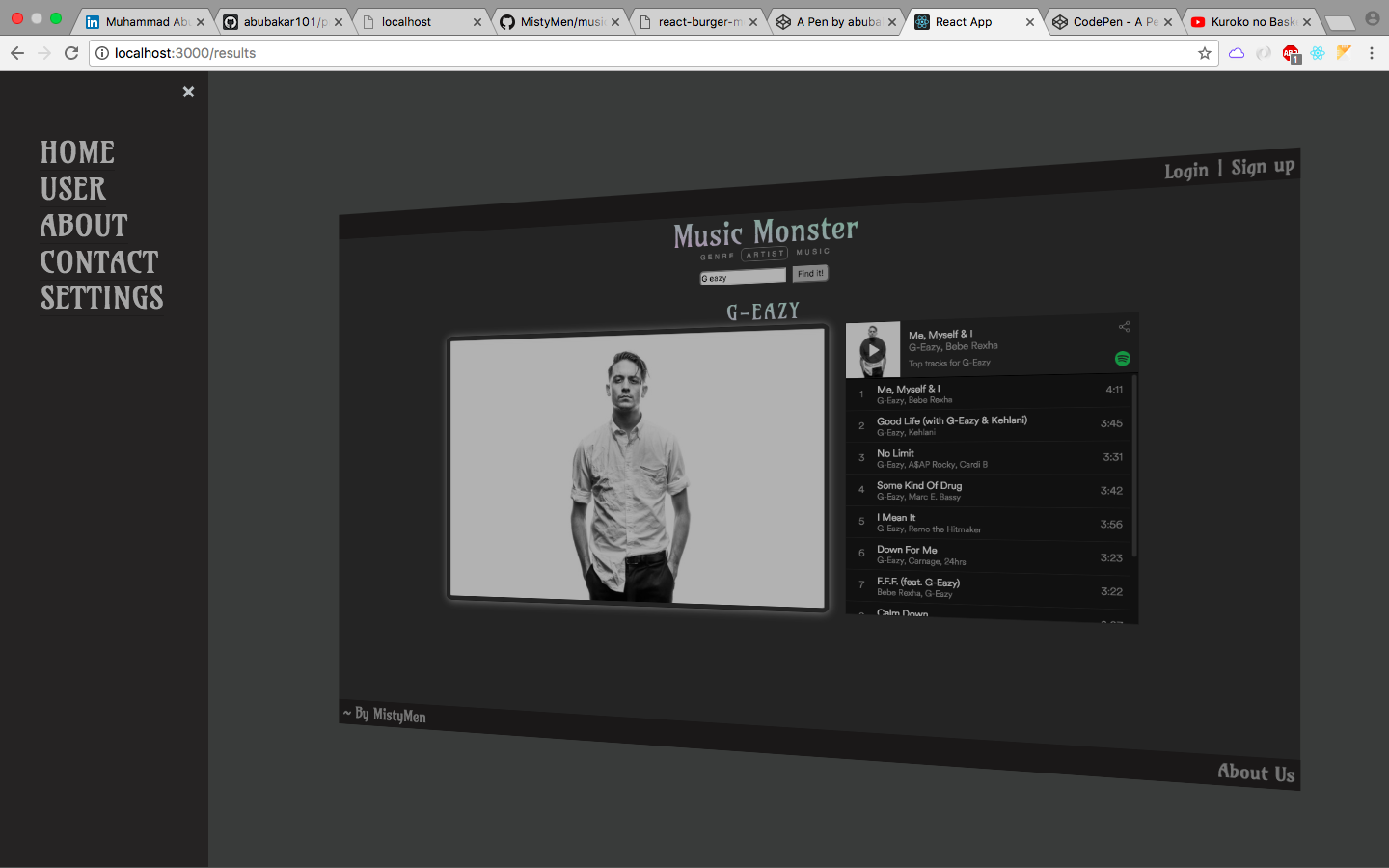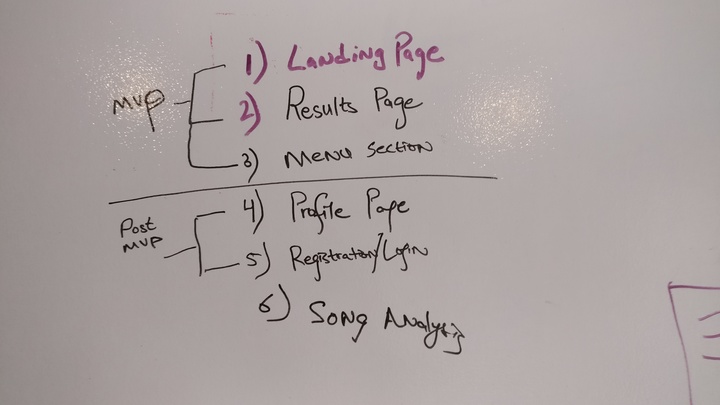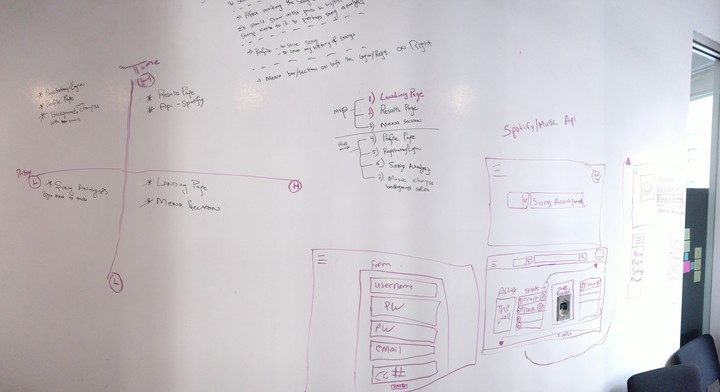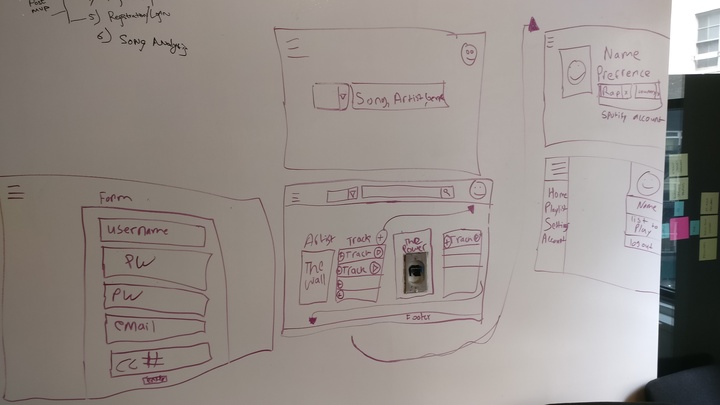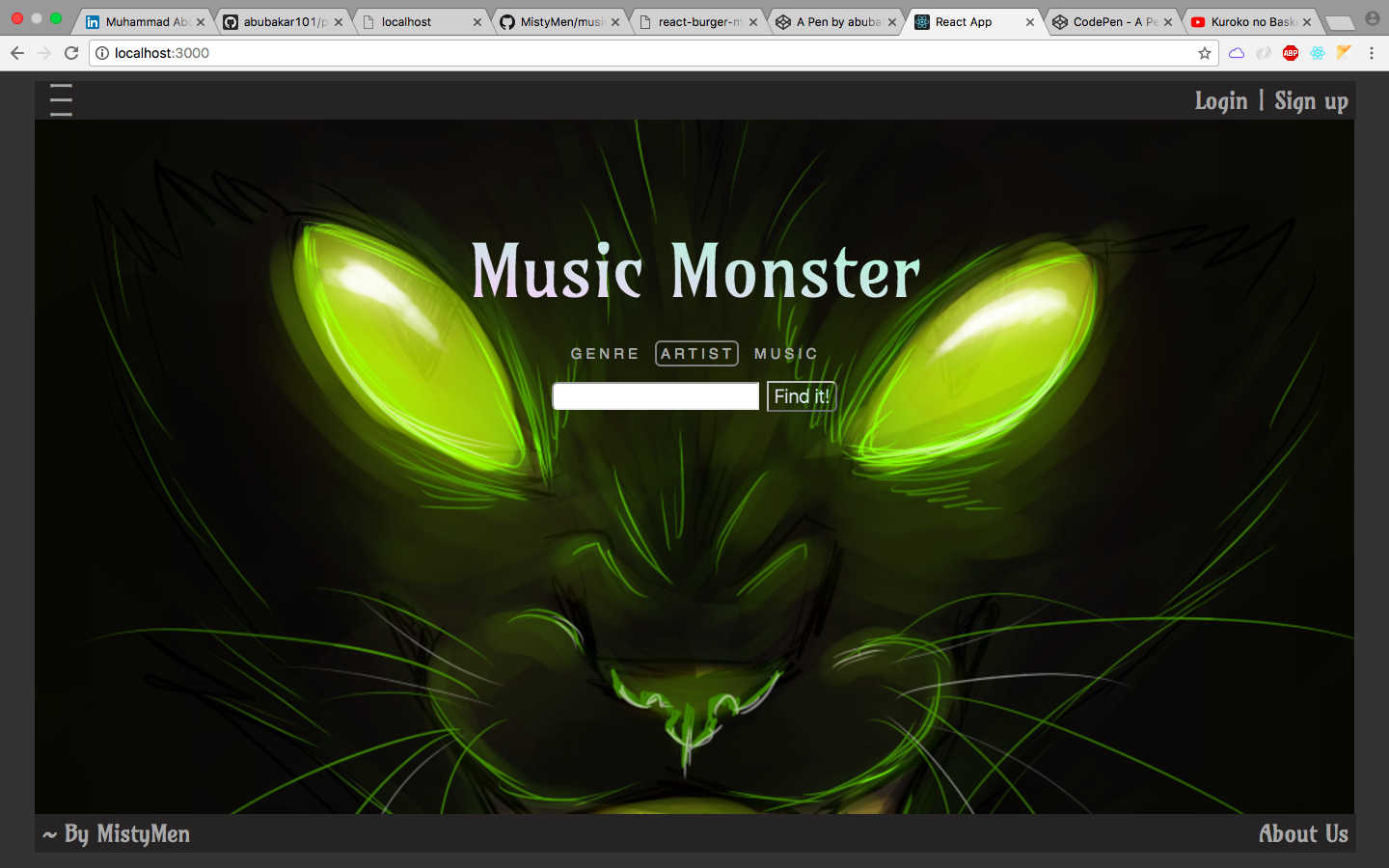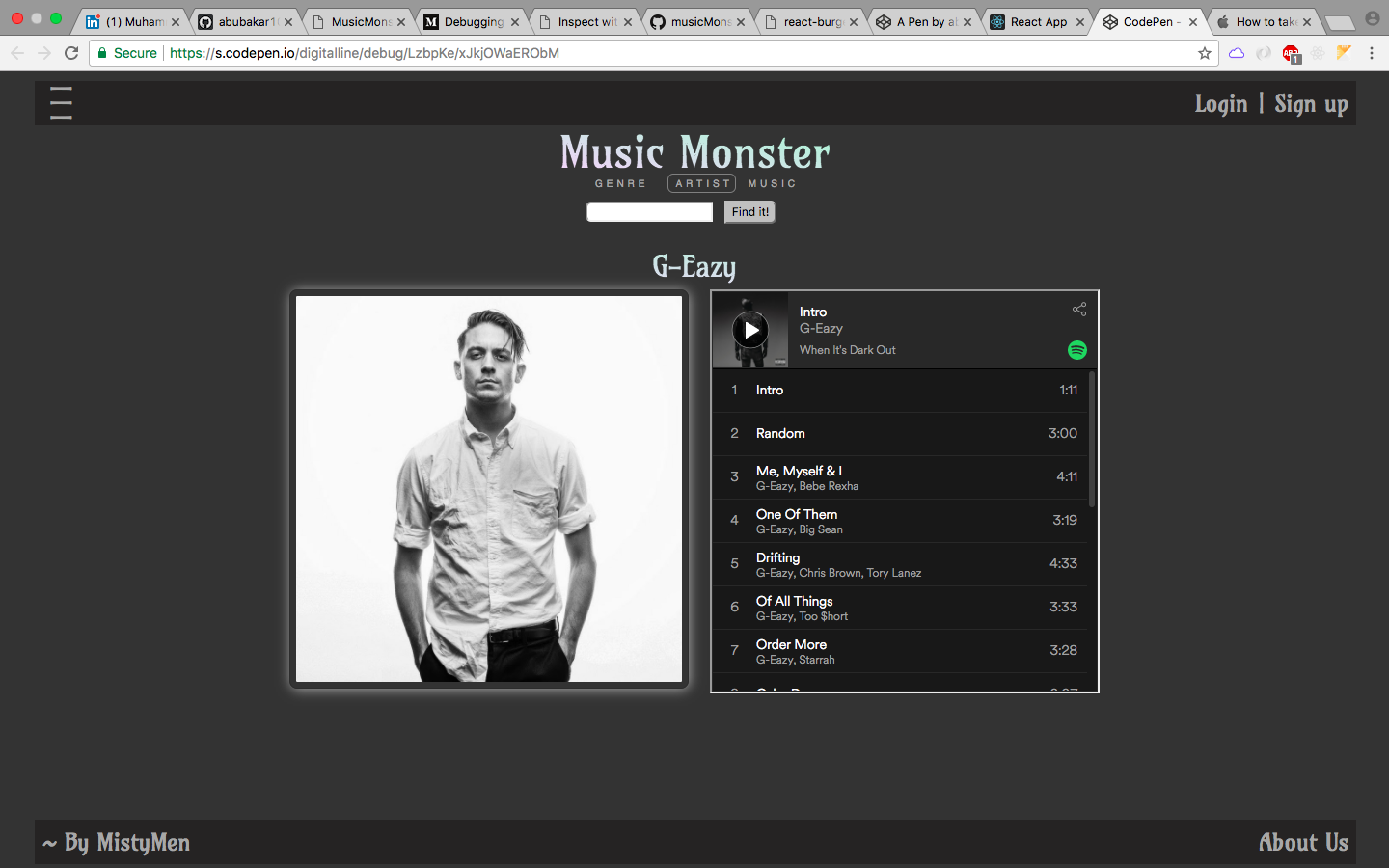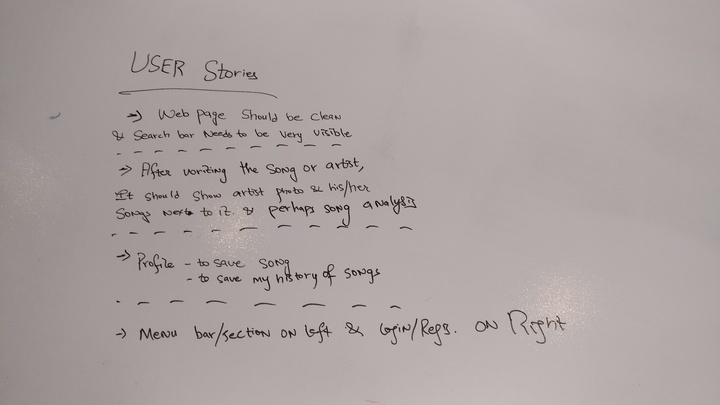Project Overview
Heroku - https://musicmonster.herokuapp.com/
Project Description
Our application is a playlist manager, that lets you save and manage your favorite artists albums. Our user-friendly music monster currently lets you search for artists using the spotify api and saving their albums to our database. You can play a clip on your browser from our website, or if you have the application you can control spotify right from your browser!
Installation
- Fork it to your github account!
- Clone it to your local machine!
- Go to migration folder in "musicMonster/monster/db/migration/" and then type
psql - Create database by typing in psql
CREATE DATABASE monster_dev; - Then come out from "psql" by typing
\q - Create table by typing
psql -f migration.sqlinside the "./migration" folder - In "monster" directory "./musicMonster/monster/", type
npm install- to install all the dependences for node.js! - Then do same in "/client" directory for REACT.
- You are ready to GO! Of course you also need Spotify token and then put it inside the "./musicMonster/monster/client/src/MusicMonster.js" file and inside the file, the variable called "APIToken" in "callSpotifyApi" function on line '117' - replace with the old one....
- Inside the "musicMonster/monster/" type
npm startto start the server on http://localhost:3001/ - Inside the "musicMonster/monster/client" type
npm startto start the server on http://localhost:3000/
Priority Matrix
MVP & Post-MVP
Wireframes
User Stories
Project Management
Completed Tasks
- Creating Node.js server
- Creating React server
- Conntecting both front and backend server
- Getting API from Spotify
- Working On CSS
- CAN Read API data based on user search
- CAN ADD to DATABASE
- CAN READ from DATABASE and show to user
Uncompleted Tasks
- CAN Delete saved songs and edit comments
- CAN Login and Sign up
- User can save and only show after user has logged in - No global saving!
Functional Components
| Feature | Priority | Estimated Time | Time Invetsted | Actual Time |
|---|---|---|---|---|
| Results Page | H | 3-4hrs | 6hrs | 12hrs |
| API | H | 6hrs | 3 Days | 3-4 Days |
| Main Menu | H | 2hrs | 4hrs | 5hrs |
| Registration/Login | L | 3 Days | 4 Days | +++ |
Code Snippet
render() {
console.log("Rendering...");
console.log(this.state.home);
let searchF = null;
if (
window.location.href.includes("login") == false &&
window.location.href.includes("register") == false
) {
searchF = (
<div className="searchSection">
<h3>
<span>Genre</span>
<span className={"artist" + (this.state.home ? "" : "Sec")}>
Artist
</span>
<span>Music</span>
</h3>
<SearchForm
home={this.state.home}
handleInputChange={this.handleInputChange}
callSpotifyApi={this.callSpotifyApi}
input={this.state.input}
/>
</div>
);
}
return (
<div id="outer-container">
<Menu />
<main id="page-wrap">
<Nav />
<div className={"container" + (this.state.home ? "" : "Sec")}>
<div className={this.state.home ? "front" : "results"}>
<div className={"title" + (this.state.home ? "" : "Sec")}>
Music Monster
</div>
<div className={"search" + (this.state.home ? "" : "Sec")}>
{searchF}
<Switch>
<Route
exact
path="/login"
render={props => (
<Login
username={this.state.username}
password={this.state.password}
handleUsernameInput={this.handleUsernameInput}
handlePasswordInput={this.handlePasswordInput}
/>
)}
/>
<Route
exact
path="/register"
render={props => (
<Register
username={this.state.username}
password={this.state.password}
handleUsernameInput={this.handleUsernameInput}
handlePasswordInput={this.handlePasswordInput}
/>
)}
/>
<Route
exact
path="/results"
render={props => (
<Results
submit={this.submitToServer}
checkUrl={this.checkUrl}
artist={this.state.artist}
image={this.state.image}
song={this.state.song}
data={this.state.searchData}
input={this.state.input}
submitToServer={this.submitToServer}
/>
)}
/>
<Route
exact
path="/user"
render={props => (
<User
checkUrl={this.checkUrl}
callingDB={this.callingDB}
dataBase={this.state.dataBase}
handleSongDelete={this.handleSongDelete}
/>
)}
/>
</Switch>
</div>
</div>
</div>
<Footer />
</main>
</div>
);
}
It is inside the musicController.js which is the main file in REACT that connects all the components and backend Node.js server. This return renders the "CSS" and all the funtionalities such as calling API, getting data from database, taking input's values from user and saving temporarily into states, submitting saved artist's song by user into database. And of course other 'CRUD' methods such as editing and deleting.
Additional Libraries
Burger King Menu - https://github.com/negomi/react-burger-menu
Burger King Menu Example - http://negomi.github.io/react-burger-menu/
